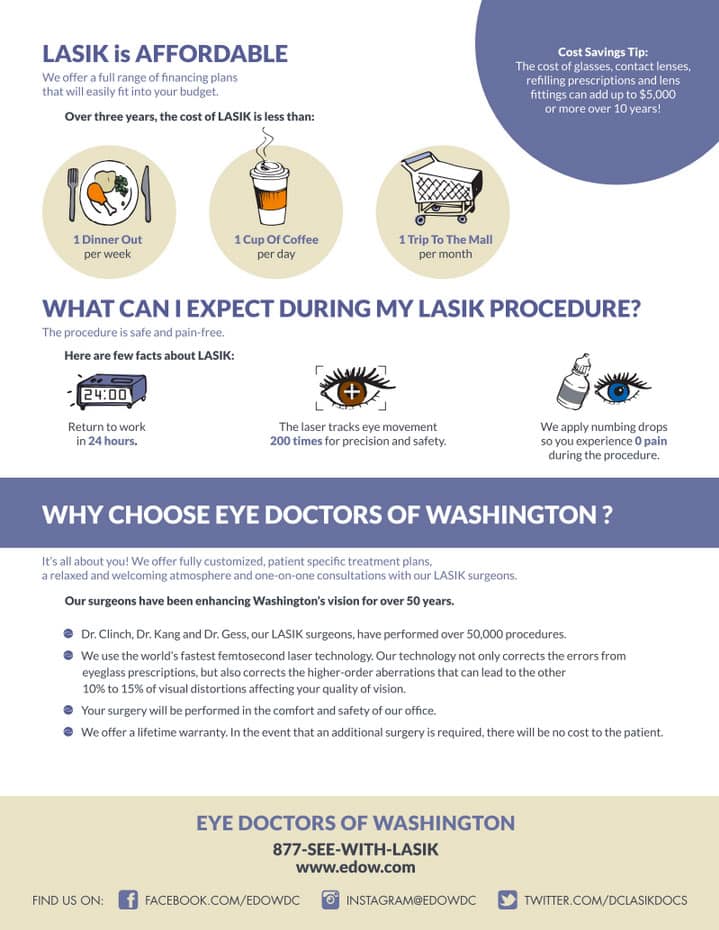Understanding Refractive Lens Exchange: Insights Your Ophthalmologist May Not Share
Understanding Refractive Lens Exchange: Insights Your Ophthalmologist May Not Share
Blog Article
Content Created By-Valentin Andreassen
Have you ever before took into consideration Refractive Lens Exchange (RLE) as a choice for vision modification? While it isn't as widely gone over as LASIK, RLE could be a game-changer for your sight. Lots of people overlook its benefits, believing standard techniques are their only choice. However what are the genuine advantages, and what might your optometrist not be informing you regarding this procedure? Allow's explore the ins and outs of RLE with each other.
Comprehending Refractive Lens Exchange: The Fundamentals
Refractive lens exchange (RLE) is an operation that can significantly improve your vision, especially if you're handling presbyopia or serious refractive errors.
Throughout RLE, your eye doctor removes your eye's all-natural lens and replaces it with a synthetic one tailored to your vision needs. This procedure can remedy nearsightedness, farsightedness, and astigmatism, offering you clearer vision without relying on glasses or contact lenses.
The surgical treatment is typically fast, taking less than an hour, and a lot of people experience minimal discomfort. Healing is reasonably quick, enabling you to go back to your day-to-day tasks quickly after.
If you're thinking about RLE, speaking with your ophthalmologist can help you establish if it's the right choice for you.
Key Differences Between RLE and Typical Cataract Surgical Treatment
While both refractive lens exchange (RLE) and standard cataract surgical procedure include changing the eye's natural lens, their primary objectives and individual accounts differ considerably.
RLE is targeted at people looking for to lower their dependancy on glasses or call lenses due to refractive mistakes, commonly before cataracts develop. On the other hand, standard cataract surgical treatment commonly targets individuals who have actually established cataracts, which shadow the lens and impair vision.
The lenses made use of in RLE can give a more comprehensive range of vision adjustment, while basic cataract surgery usually involves standard monofocal lenses.
Additionally, RLE candidates are often more youthful and in excellent overall health and wellness, whereas cataract individuals might be older and have various other health issues.
Selecting the right procedure relies on your particular vision requirements and conditions.
Potential Advantages and Considerations of RLE
If you're considering refractive lens exchange (RLE), you'll locate a number of potential advantages that might boost your quality of life.
RLE can give you with clearer vision, lowering or getting rid of the demand for glasses or get in touch with lenses. It supplies a chance to deal with presbyopia and other refractive mistakes at the same time, usually boosting your overall visual acuity.
In Keep Reading , RLE can be a wonderful option if you're not a suitable candidate for LASIK. Nonetheless, it's important to weigh the factors to consider, like the cost, potential risks, and the recovery period.
Reviewing your particular requirements with your optometrist can help you make an educated decision, guaranteeing you select the most effective course for your vision correction.
Conclusion
Finally, refractive lens exchange supplies an one-of-a-kind remedy for vision modification that surpasses what LASIK can give. It's essential to evaluate the benefits versus potential threats and costs prior to deciding. Do not hesitate to ask your ophthalmologist the challenging inquiries to guarantee you fully comprehend the procedure and its ramifications for your vision. With the right info, you can confidently choose the very best alternative for your eyes and way of life.
